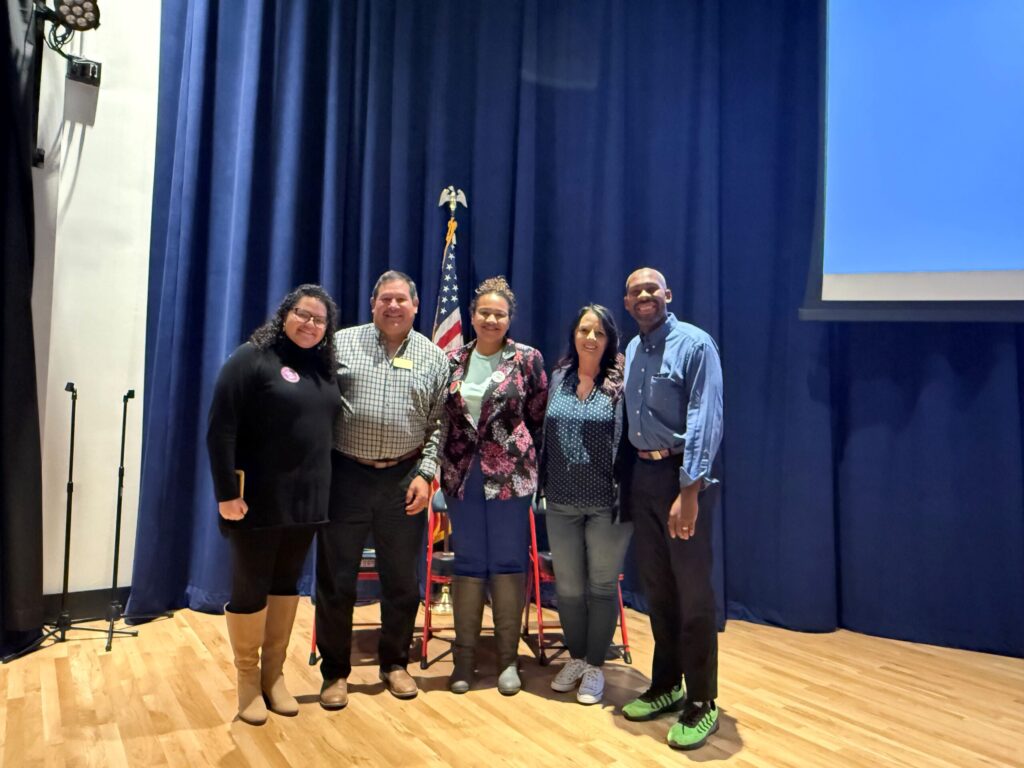Retired Air Force General Ronald Keys talks energy, national security with Colorado farmers

In the decade he’s been examining the relationship between climate change and national security, retired Air Force General Ronald E. Keys says he’s seen huge advances in efficiency, affordability and ways to use renewable energy in more and more situations, but some of the most profound changes he’s seen have been in attitudes.
“People would say, ‘What are you talking about? Renewables are not going to work.’ All the hand-waving. Now people are saying they understand it,” Keys told Colorado Politics after he delivered the keynote address Nov. 17 at the Colorado Farm Bureau’s annual conference in Greenwood Village.
These days, he said, instead of having to get over a big initial hurdle to persuade energy users – from farmers and ranchers to residential and business consumers and military installations – that it makes sense to consider renewable sources, as often as not talk turns immediately to practical questions. And then, he added, there’s a chance to consider the range of solutions that have emerged as clean energy and more efficient approaches have gone mainstream.
“If you believe it can be done, what you’re always looking for is what’s holding up the train,” he said. “Is the cost still too high, and you’ve got to figure out a way to break the cost curve? Or is it a matter that there’s a rule out there that makes it so onerous that you can’t site, let’s say, a wind field – that the rules make it so hard it’s just not worth it?”
Keys, who retired as commander of Air Combat Command in 2007 after more than 40 years in uniform, sits on CNA’s Military Advisory Board – known as the MAB – on Department of Defense Energy Security and Climate Change projects. The elite group of 30 retired three- and four-star generals and admirals studies questions surrounding energy use and national security.
The group issued a report earlier this year calling it a national priority to embrace advanced energy and urged the Trump administration to consider fossil fuels a bridge to a clean-energy future.
“The U.S. has a choice: Will we be bystanders in the transformation, or do we participate and steer the process to our economic and security advantage?” the report asked. It concluded that the choice the nation’s leaders make will have economic and military security ramifications for decades.
“Should America embrace and accelerate the use of advanced energy sources, it can open new markets for a wide range of goods and services, promote prosperity in emerging economies, and establish new energy tethers and political influence,” the retired military brass wrote.
Over the years, the MAB has encouraged the military to adopt energy efficiencies and use renewable technology, both because it’s safer when field bases don’t have to risk lives transporting fuel and because it adds resilience to fighting units that can stay on mission even if the power grid, for instance, goes down. It also saves money, always a concern, Keys noted, so innovations adopted in the field make their way to stateside bases and into the civilian economy.
Keys told Colorado Politics that the group gets the attention of some policy-makers who aren’t usually open to hearing about cleaner, advanced energy.
“A strength of the MAB is none of us are representing renewable energy, none of us are representing fossil fuels,” he said. “We like to say we’re representing our grandkids. We’re trying to help them make the right choices for mission effectiveness. We don’t have an ax to grind. One of the reasons many of us got involved is we were worried there might be pressure on DOD to adopt certain things because they were the next bright and shiny object, but they necessarily didn’t apply to war fighting.”
Between them, MAB members have around 1,000 years of experience, he said with a smile. “And some of the experience is not that good. We want to help people not have to learn that lesson again because we’ve learned it in spades and painfully so.”
That’s one reason he said it was important to talk with members of the Colorado Farm Bureau about how much the energy economy has changed, said Keys, who grew up on a farm in northeast Kansas.
“I think the solution to this is, it’s going to be started down here at the grassroots,” he said. “When you’re down at the farm level … you know what your resources are, you know what you can afford, and you start doing what you can where you can when you can and then broaden that out. In every state and every community, one size is not going to fit all, so you have to do what makes sense for you.”
And that’s where evolving attitudes make a big difference, he said.
“What I’m fond of saying is, inside the Beltway oftentimes, the discussion immediately goes to religion – whether it’s big government, little government; Republican, Democrat; conservative, liberal – rather than what I think it ought to be on, which is mathematics,” Keys said. “Let’s find out how bad the problem is, what can we do to change it, how much will it cost, how long will it take, rather than throwing theology out on the table and then shouting at each other over theology. That’s not going to fix it.”
Open communication across the board is critical, he said.
“You can’t be shouting at each other. We need to have those kind of discussions. If someone doesn’t believe what you believe, it’s not because they’re evil, it’s because you haven’t talked about this with them.”
In Colorado, at least, Keys pointed to the confluence of leadership on advanced energy policy from officials – Gov. Bill Ritter, for instance, coined the term “new energy economy,” and the Legislature has mandated that the state get an increasing share of its power from renewable sources – along with the influence wielded by the agricultural sector of the economy.
“Particularly in an area where you have a lot of rural influence,” he said, “it’s happening here. They’re pretty pragmatic people. You put the numbers down and say, ‘This seems to make sense. Let’s see if it works.’ Then you get the constituent effect – people talk to their representatives and they say they think this is working. ‘We’d like to see some of these policies that stand in the way, we’d like to see some of them changed a little bit.’ If we’ve got a policy that was written in 1956, maybe it doesn’t make sense when we’re doing business in 2017.”
While solar panels are plunging in price as power-generating capability soars, Keys said it’s important to keep in mind that technology is only one aspect of the innovation transforming the energy economy.
“We tend to think of innovation as a scientific thing, something you do in a lab, but some of the innovation is how do you control things, how do you regulate things, how do you pay for things,” he said. “You have to look at how you’re using energy and if you’re using it smartly. You can make it very cheap if you’re not using it at all. Innovation is as much about the rules and regulations, procedures – how are you using it. You need to get your hands around that.”
So when it comes to taking a fresh look at wind farms and solar fields and a range of advances in efficiency, Keys said farmers and ranchers get it.
“They’re pragmatic people. You put the numbers down and say, ‘This seems to make sense. Let’s see if it works.’ There’s a great quote I use a lot from General Eisenhower. He said, ‘Farming looks really easy when you’re a thousand miles away and you’re plowing fields with a pencil.’
“On the one hand, farmers are some of the most conservative, pragmatic people around, but they’re the biggest gamblers there are. You put a seed in the ground, and you don’t know if it’s going to rain, you don’t know if a big wind is going to come up, you don’t know what the commodity prices are going to be. You think you do, but you don’t really. If they believe in something, then you know you’ve made some real progress. They don’t care how glitzy it is, they just care if it works and if it improves their life in a way they can afford.”














